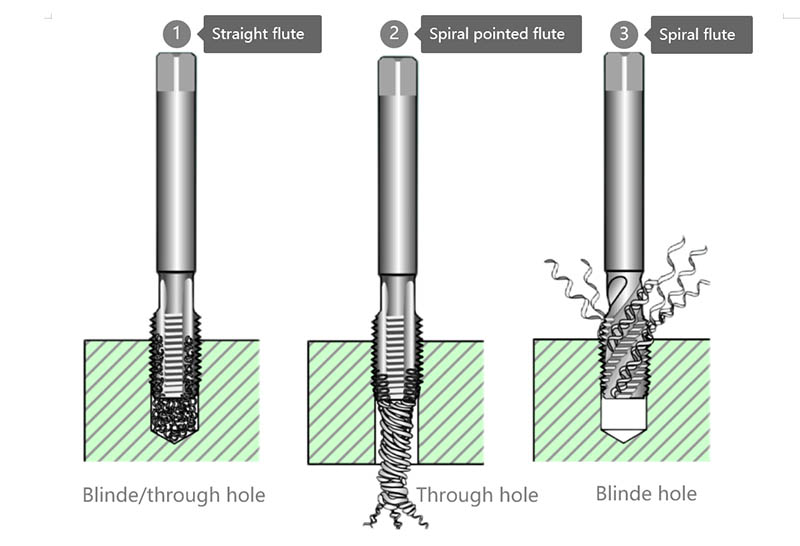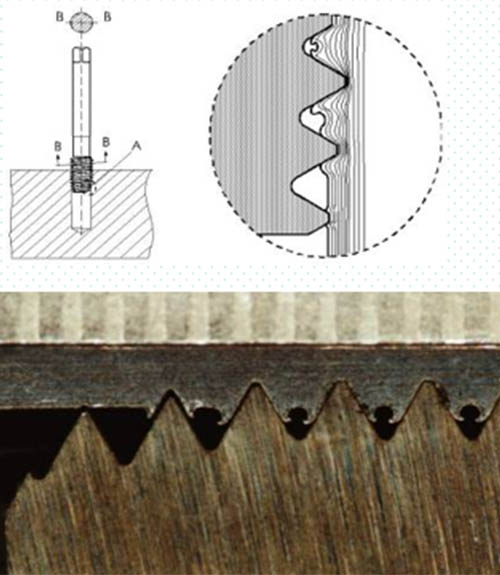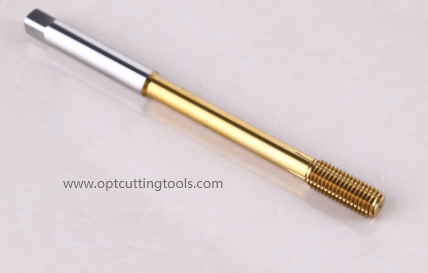When we tapping threads, there are many types of taps for you to choose from. How can we choose them? Such as tapping hardened steel, tapping cast iron, or tapping aluminum, how should we do?
Yes, they are all used for tapping threads, but choosing a suitable tap requires understanding your workpiece and working conditions, such as the material of the workpiece being processed, the size and depth of the thread bottom hole, and whether there is interference, in order to make your processing more efficient and efficient.
Classification is mainly divided into the following two categories based on appearance and structure:
1.Straight flute tap: used for processing through and blind holes. Iron chips exist in the tap groove, and the processed thread quality is not high. It is more commonly used for processing short chip materials, such as gray cast iron.
2.Spiral pointed tap: usually only used for through holes, with a length to diameter ratio of up to 3D~3.5D, iron chips discharged downwards, low cutting torque, and high surface quality of the processed thread. It is also known as edge angle tap or tip tap.
When cutting, it is necessary to ensure that all cutting parts are penetrated, otherwise tooth breakage may occur.
3.Spiral flute tap: used for blind hole processing with a hole depth of less than or equal to 3D. Iron chips are discharged along the spiral groove, resulting in high surface quality of the thread.
The 10-20 ° spiral angle tap can process thread depths up to 2D; The 28-40 ° spiral angle tap can process thread depths up to 3D; The 50 ° spiral angle tap can process thread depths up to 3.5D (special working condition 4D).
Sometimes (hard materials, large tooth pitches, etc.), in order to achieve better tooth tip strength, spiral flute taps are used to process through holes.
Forming taps aslo called Fluteless tap, Rolling tap
It can be used for processing through holes and blind holes, forming tooth shapes through plastic deformation of materials, and can only be used for processing plastic materials.
The surface smoothness of the thread extruded with an form tap is perfect, the metal fibers of the thread do not break, and a cold hard layer is formed on the surface, which can improve the strength and wear resistance of the thread.
Among all taps, forming threads are the most perfect, with the highest tensile strength and thread qualification rate, provided that the lower hole diameter is suitable.
Main characteristics:
1. Utilize the plastic deformation of the workpiece to process threads;
2. The tap has a large cross-sectional area, high strength, and is not easily broken;
3. The cutting speed can be higher than the cutting tap, and the productivity also increases accordingly;
4. Due to cold extrusion processing, the mechanical properties of the processed thread surface are improved, the surface roughness is high, and the thread strength, wear resistance, and corrosion resistance are improved;
5. Chip free processing.
Its shortcomings are:
Can only be used for processing plastic materials;
There are two structural forms:
1. The non oil groove forming tap is only used for the working condition of blind hole vertical addition;
2 oil groove forming taps are suitable for all working conditions, but usually small diameter taps are not designed with oil grooves due to manufacturing difficulties.
Post time: Oct-11-2023




